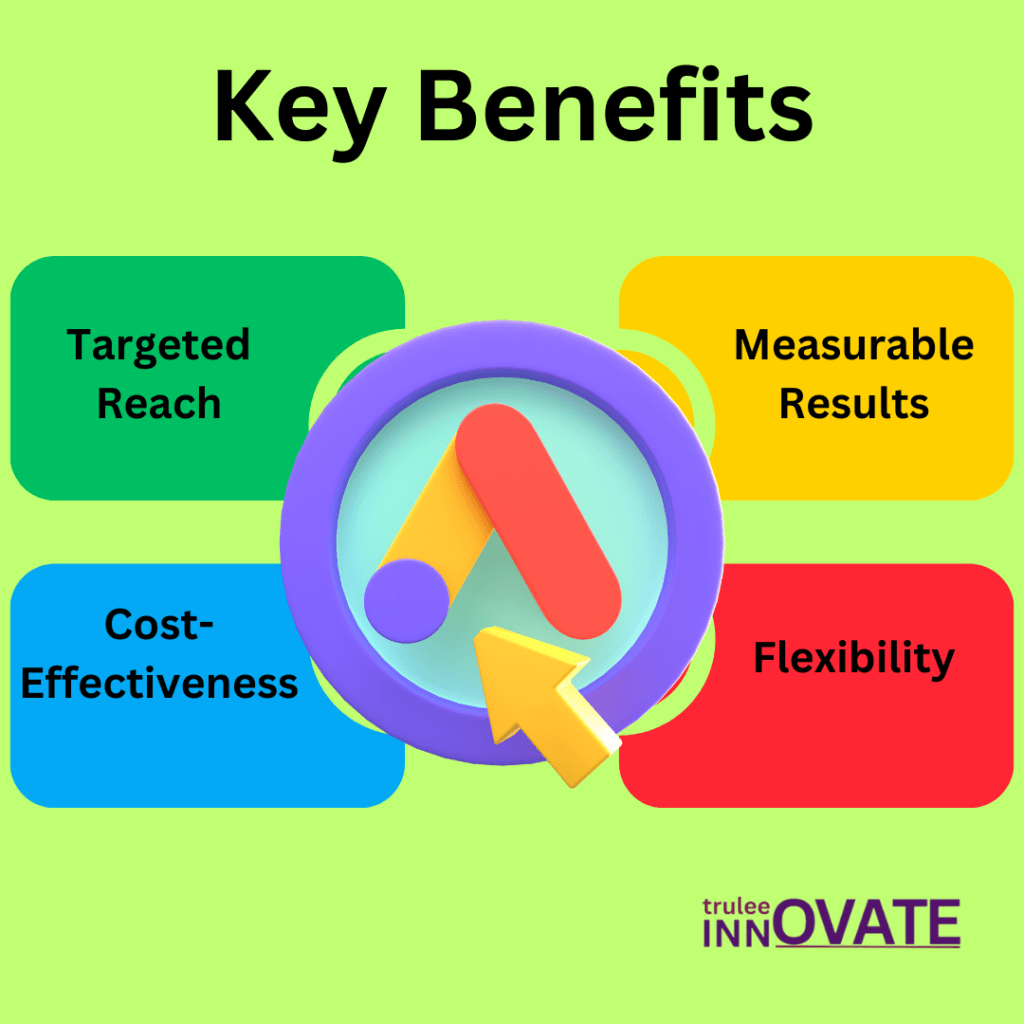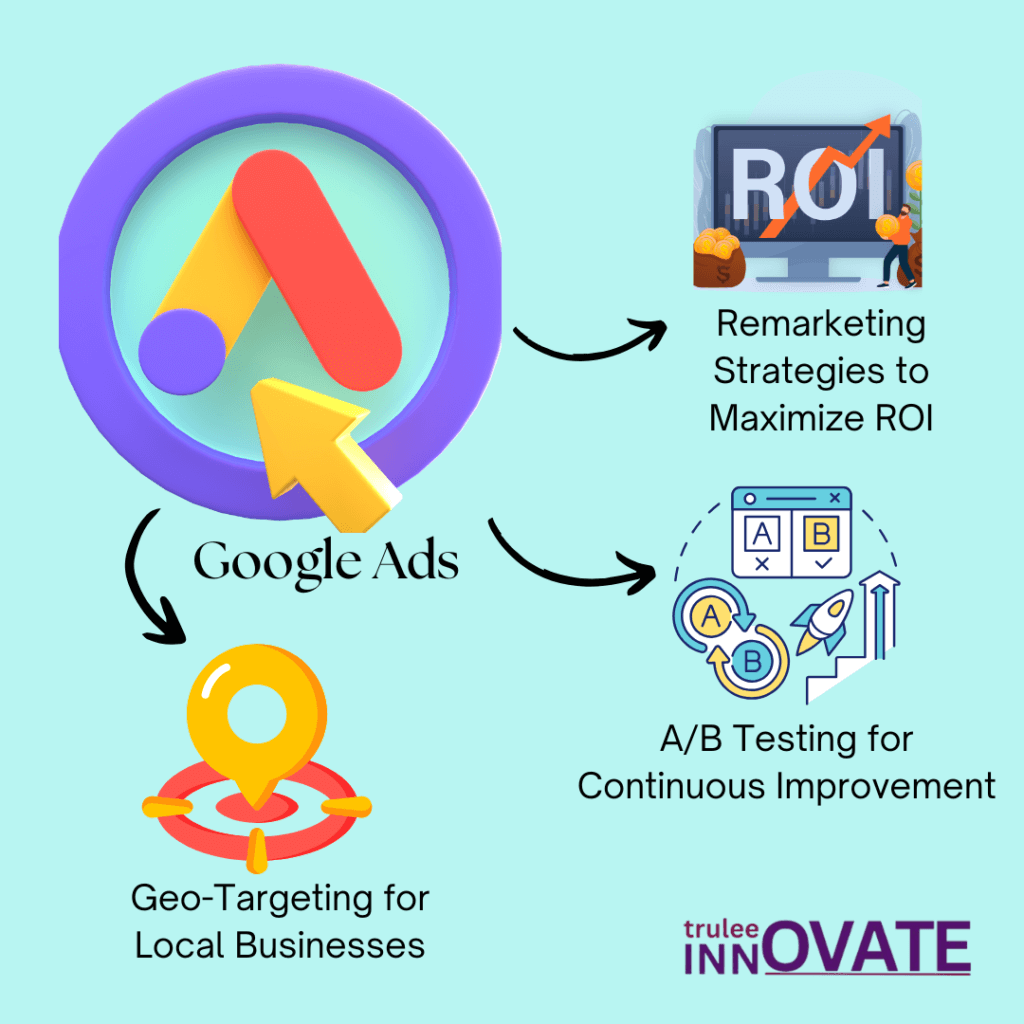1. Introduction to Google AdWords Management
Digital marketing is at the heart of business growth in today’s tech-driven world, and Google AdWords stands out as a vital tool in achieving this success. Managing Google AdWords campaigns effectively can determine whether a business merely survives or truly thrives online.
Google AdWords management involves strategizing, creating, and optimizing campaigns to meet specific business objectives, such as increasing website traffic, boosting sales, or building brand awareness. This blog will walk you through everything you need to know to master this powerful advertising platform and achieve exceptional results.
2. Why Google AdWords is Crucial for Businesses
Because it enables businesses to display their ads directly to users who areGoogle AdWords, now known as Google Ads, is one of the most impactful advertising platforms. Why? Because it enables businesses to display their ads directly to users actively searching for relevant products or services. Unlike traditional advertising, it ensures that every penny spent targets potential customers.
Key Benefits:
- Targeted Reach: Show ads to the right audience based on search intent, demographics, and location.
- Cost-Effectiveness: Pay only when someone clicks on your ad (Pay-Per-Click model).
- Measurable Results: Monitor performance with detailed insights and analytics.
- Flexibility: Adjust campaigns in real-time based on performance.

For small businesses or startups, this level of precision can be the difference between struggling to be seen and leading the market.
3. The Basics of Setting Up Google AdWords Campaigns
What is Google AdWords?
Google AdWords is an advertising platform where businesses bid for ad placements on Google’s search engine and its partner websites. These ads appear at the top of search results, often marked as “Sponsored.”
Steps to Set Up a Campaign:
- Create a Google AdWords Account: Sign up on the Google Ads platform with your business details.
- Define Campaign Goals: Decide what you want to achieve (e.g., increase sales, generate leads, drive website traffic).
- Choose a Campaign Type: Select from options like Search, Display, Video, Shopping, or App campaigns based on your objective.
- Set a Budget: Allocate a daily or monthly budget to control spending.
- Select Keywords: Use tools like Google Keyword Planner to identify terms your audience is searching for.
- Craft Ads: Write engaging headlines, descriptions, and calls-to-action.
- Launch and Monitor: Start your campaign and analyze performance regularly.
4. Key Components of Effective Google AdWords Management
Understanding Keywords and Their Importance
Keywords are the backbone of any Google AdWords campaign. They determine who sees your ad based on their search queries. Effective keyword strategies include:
Long-tail Keywords: Specific phrases with lower competition but high intent (e.g., “affordable SEO services in Bangalore”).
Negative Keywords: To prevent squandering money, eliminate pointless searches.
Keyword Match Types: To regulate how closely searches must match your terms, choose wide match, phrase match, or precise match.
Writing Compelling Ad Copy Your ad copy is the first interaction potential customers have with your brand. Make it count by :
- Highlighting your unique selling propositions (USPs).
- Using action-oriented language.
- containing an obvious call to action, such as “Get a Free Quote” or “Buy Now.”
Leveraging Ad Extensions
Ad extensions enhance your ads by providing additional information or options, such as:
- Site links to specific pages on your website.
- Call buttons for immediate contact.
- Location details to guide local customers.
5. Advanced Google AdWords Management Techniques
Geo-Targeting for Local Businesses
Geo-targeting allows businesses to focus on specific geographic regions, ensuring that ads reach the most relevant audience A restaurant, for example, can target customers who live within five miles of its location.
A/B Testing for Continuous Improvement
Creating two or more ad variants and comparing their performance is known as A/B testing. By analyzing results, ,businesses can optimize headlines, CTAs, and keywords for maximum impact.
Remarketing Strategies to Maximize ROI
Remarketing targets users who have already interacted with your website but didn’t convert. These ads keep your brand visible and encourage users to take action, whether it’s making a purchase or filling out a form.

6. Common Mistakes in Google AdWords Management and How to Avoid Them
Common Mistakes:
- Broad Keyword Usage: Casting too wide a net without refining keywords can drain budgets.
- Negative keyword neglect results in wasted money on pointless searches.
- Poor Landing Pages: Ads should direct users to optimized, relevant pages for higher conversion rates.
- Neglecting Analytics: Failure to analyze metrics like CTR and CPC means missing opportunities for improvement. How to Avoid These Mistakes:
- Regularly update and refine your keyword list.
- Conduct thorough A/B tests.
- Monitor campaign performance weekly.
- Optimize your landing pages for speed and relevance.
7. Tools and Analytics for Monitoring AdWords Performance
Google Analytics Integration
Integrating Google Ads with Google Analytics offers detailed insights into user behavior, conversion paths, and campaign performance.
Key Metrics to Monitor:
- CTR (Click-Through Rate): Indicates ad effectiveness.
- CPC (Cost Per Click): Measures cost-efficiency.
- Quality Score: Google’s rating of your ad relevance and landing page experience.
- ROI (Return on Investment): Shows profitability and campaign success.
8.Budget Optimization for Google AdWords Campaigns
Optimizing budgets ensures you get the most out of every dollar spent. Strategies include:
- Allocating more budget to high-performing keywords.
- Using automated bidding strategies like Smart Bidding for efficiency.
- Adjusting budgets based on seasonal trends or business priorities.
9. The Role of AdWords Management Services in Digital Marketing Success
Hiring a professional Google AdWords management service can save time and improve results. These services:
- Provide expert keyword research.
- Optimize ad performance continuously.
- Align campaigns with broader marketing goals.
For businesses with limited resources, outsourcing this task ensures a competitive edge in the market.
10. Future Trends in Google AdWords Management
The future of AdWords management lies in automation, personalization, and integration with emerging technologies. Trends include:
AI-Powered Campaigns: Automating bidding, targeting, and optimization with artificial intelligence.
Voice Search Optimization: Preparing for the rise of voice-activated searches on devices like Alexa and Google Assistant.
Advanced Targeting: Using first-party data to create highly personalized ad experiences.
11. Conclusion: Enhancing Your ROI with Expert AdWords Management
Google AdWords is a powerful tool for businesses of all sizes, but its success depends on effective management. By focusing on detailed keyword research, engaging ad copy, advanced targeting, and ongoing optimization, you can significantly enhance your ROI and grow your business.


